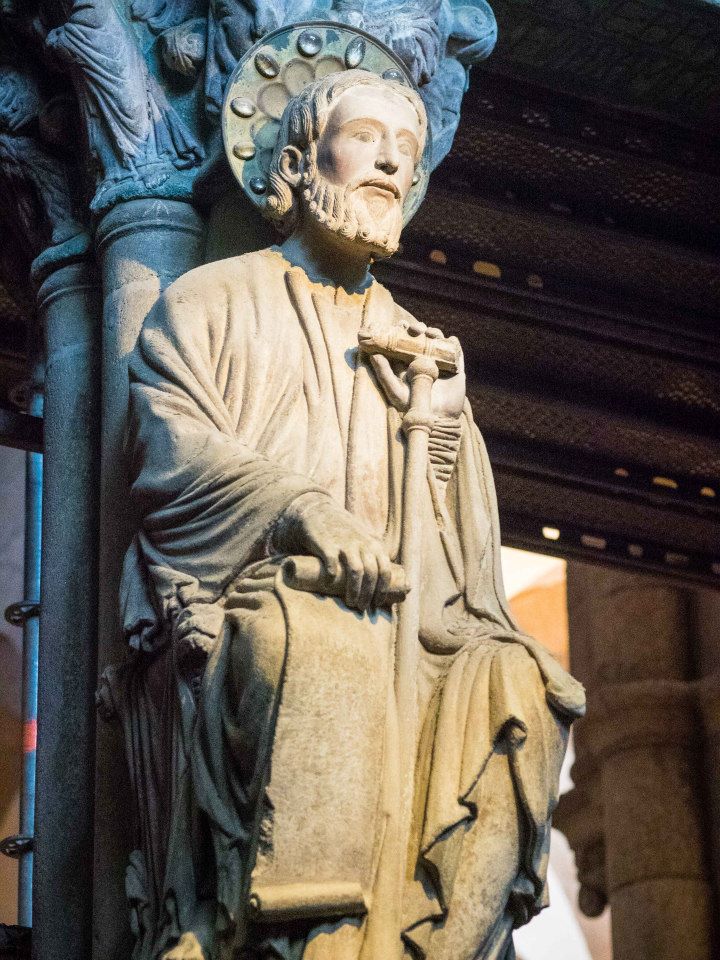July 25th, the Feast of St. James the Great brings me back to two momentous summers. Twice, once in 2010 and again in 2014, I walked the Camino de Santiago de Compostela with my father. The first time, we walked from St. Jean Pied de Port, a bit over 500 miles, and the second time from Pamplona, perhaps closer to 450 miles, to visit the tomb of St. James, who according to tradition had journeyed to the city that now bears his name and, sccording to the same tradition, is buried in the cathedral there.
The camino teaches many lessons. My first lesson, as we began from St. Jean over the Pyrenees, was “Comienza viejo para terminar joven.” “Start old to finish young.” It was a gentle reminder that I should not expend too much energy too early in the day. Little did I know how much crossing the Pyrenees would take out of me.

We had daily lessons in gratitude: the kind offer of a cup of cold water, warm conversations with fellow pilgrims, and gentle attention from strangers to aches and pains and blisters, as inevitably happen over such distances. There was gratitude in simple things. Our world encourages us to gather more things, as if they will make us happy. On the camino discovers that things are not so urgent or even valuable in abundance. The best backpack for the camino is a light one. I learned to carry really only four sets of clothes– even though only two or three would be necessary. I brought one for the airplane coming and going, and three sets for the days on the camino. Washing clothes daily, a huge wardrobe in a backpack would be counter-productive.
Our modern fixation on bulging closets and rapid turnover of our fashion go against the lived experience of the Camino and, actually, against the lived experience over millennia of human existence. We really do not need as much clothing as we have, and we need not treat our clothing as disposable at the same time. Sadly, a further lesson of treating those objects as disposable is that we extend that same treatment to the nameless, faceless garment workers so distant from us who make our clothing. They, too, become disposable.
Again, St. James teaches gratitude, and, on this Feast of St. James, I wish to deepen my gratitude.

I am grateful to St. James, Santiago, brother to St. John the Evangelist. St. James, you were present at so many intimate moments in the life of Christ. You were atop that mountain when Christ was transfigured. You were near Him in the Garden of Gethsemene. You called us, in your letter, to join our faith with works, directed especially to those most poor. You were the first apostle to lay down your life. Your closeness to the Lord, your generous service, draw me and encourage me to be a more faithful disciple, and I am blessed to have now made it twice to your pray at your place of rest.

